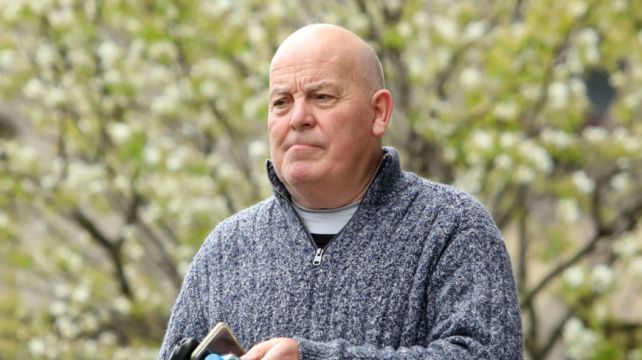A brother of deceased gangster, Cyril "Dublin Jimmy" McGuinness, has failed in a High Court action claiming his business premises was unlawfully searched by gardaí.
Truck dealer Fran McGuinness (62), originally from Pinnock Hill, Swords, Co Dublin, and currently living on the Dublin Road, Newry, Co Down, claimed he was the victim of garda harassment over several years simply because of his brother.
Cyril was suspected of a number of attacks on former Quinn business premises following the collapse of the Quinn empire, including masterminding the abduction of Kevin Lunney. Cyril died of a cardiac arrest shortly after he collapsed during a police search of his Derbyshire, England, home in 2019.
Fran McGuinness sued the Garda Commissioner and the State over a search of his truck business premises next door to the former family home at Pinnock Hill in Swords on August 23rd, 2014.
He claimed the gardaí wrongly associated him with the Quinn attacks and that information used to swear the warrant for the search was untrue.
He also claimed gardaí caused unnecessary damage to two gates to the premises by using an acetylene torch and seized important documents for his UK truck trading companies.
They also took envelopes containing £2,000 sterling and €1,800 which were commission payments for other traders which he later had to make up for, he said.
The defendants denied the claims, said the search was lawful, that there were no envelopes containing money and that copies of other documents seized were returned to him.
Gardaí carried out the search of the Pinnock Hill yard after it was established that a jeep used in one of the Quinn attacks had been seen in the yard at a specific time and date, the court heard.
In a judgment on Thursday, Mr Justice David Nolan dismissed his case.
The judge said that in the circumstances following the Quinn attacks, it was "perfectly right and proper that, based upon credible information which was seen by a High Court Judge, that the steps taken by the Gardai should be as they were."
He ruled Mr McGuinness had not discharged the burden of proof placed upon him that the search was unlawful or was carried out in a heavy-handed, oppressive manner so as to constitute harassment.
He did not regard the cutting of the two gates as being excessive given that time was limited and that officers did not know what was behind the gates.
"Given the size of the yard, it seems to me that the number of Gardaí who were employed cannot be criticised", he said.
He found as a fact that the defendants did not take any envelopes containing cash or a cheque book.
He also said no authority was opened to him which suggested that in any way that there was an obligation on the defendants to “prove” the warrant in a civil case.
The failure of the gardaí to produce the original warrant did not make the warrant in any way invalid, he said.
He found as a fact that the garda sergeant who applied for the warrant did what he said he did and that the warrant was executed in a lawful manner.







